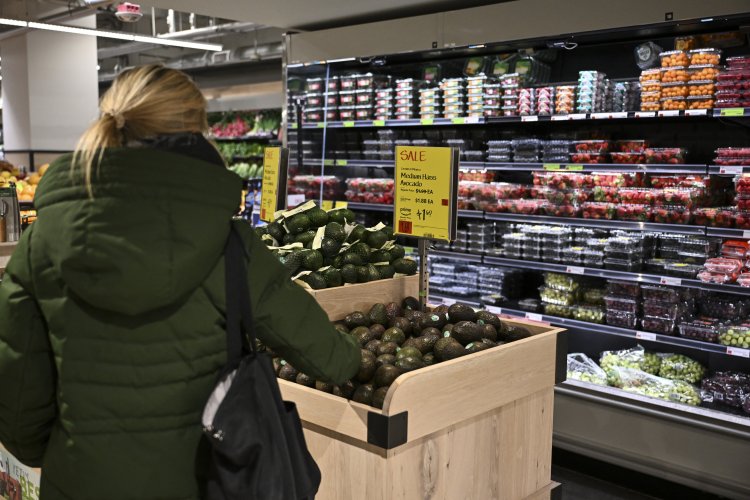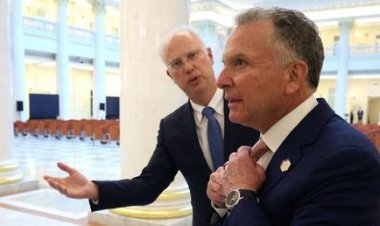Inflation Unexpectedly Eases While Consumers Prepare for Trump-Imposed Tariffs
Wall Street analysts warn that it won't be long before increased import levies, which include new penalties imposed on China, take effect.

According to the Labor Department's report released Thursday, the Consumer Price Index (CPI) increased at an annual rate of only 2.4 percent in March, which is softer than the consensus estimates and notably below the 2.8 percent recorded in February. Monthly prices dropped significantly due to a sharp decrease in gasoline costs. Additionally, core inflation—excluding the volatile food and energy sectors—also came in lower than anticipated at 2.8 percent.
Following the release of this report, Trump, Vice President JD Vance, and other officials from the administration expressed their satisfaction, viewing the results as evidence of the president's commitment to his campaign promise of reducing prices. The White House issued a statement declaring, “America Is Back — But Inflation Is Not.”
Despite this positive report, there are increasing indications from economic surveys that the prospect of rising prices is causing concern among businesses and consumers, especially with the likelihood of higher-cost imports looming.
Eugenio Aleman, the chief economist at Raymond James, shared his insights in a research note, stating, “The better-than-expected CPI inflation numbers, both headline and core, are good news for the Federal Reserve and for the economy. However, this is probably going to be the last disinflationary year-over-year print this year as the increase in tariffs starts to affect prices going forward.”
Trump's announcement on Wednesday to suspend most reciprocal tariffs provided some reassurance to stock market investors, yet economists caution that the intensifying trade confrontation with China—and the ongoing uncertainty surrounding how the administration will handle numerous bilateral tariff negotiations—are anticipated to lead to price increases.
Federal Reserve Chair Jerome Powell highlighted last week that the price elevations related to tariffs are likely to be more significant than previously expected. Furthermore, Federal Reserve Bank of Richmond President Tom Barkin stated on Wednesday in an interview with Axios that he anticipates visible tariff-related price increases starting in June.
“The increase in US tariffs on China’s imports will deliver meaningful upward pressure to costs unless supply chains can be diverted to other economies, so inflation risks remain elevated, even after yesterday’s 90-day reprieve to the rest of the world,” remarked Seema Shah, the chief global strategist at Principal Asset Management.
Rising fears of price surges and a slowdown in economic growth have also heightened consumer inflation expectations. According to a report from The Conference Board last month, Americans now foresee prices increasing by as much as 6.2 percent over the next year. Research by the Federal Reserve Banks of New York and Atlanta indicates that businesses are also anticipating price hikes in the coming months.
While the March report may help moderate those expectations in the near term, economists and analysts on Wall Street warn that it won't be long before the effects of new tariffs on China, which were implemented in March, start to show in inflation data.
"If we weren’t on the eve of significant tariff impacts, today’s CPI report would be a welcome sign that inflation is moving in the right direction," noted Jason Pride, the chief of investment strategy and research at Glenmede, on Thursday.
Max Fischer for TROIB News
Find more stories on Business, Economy and Finance in TROIB business












